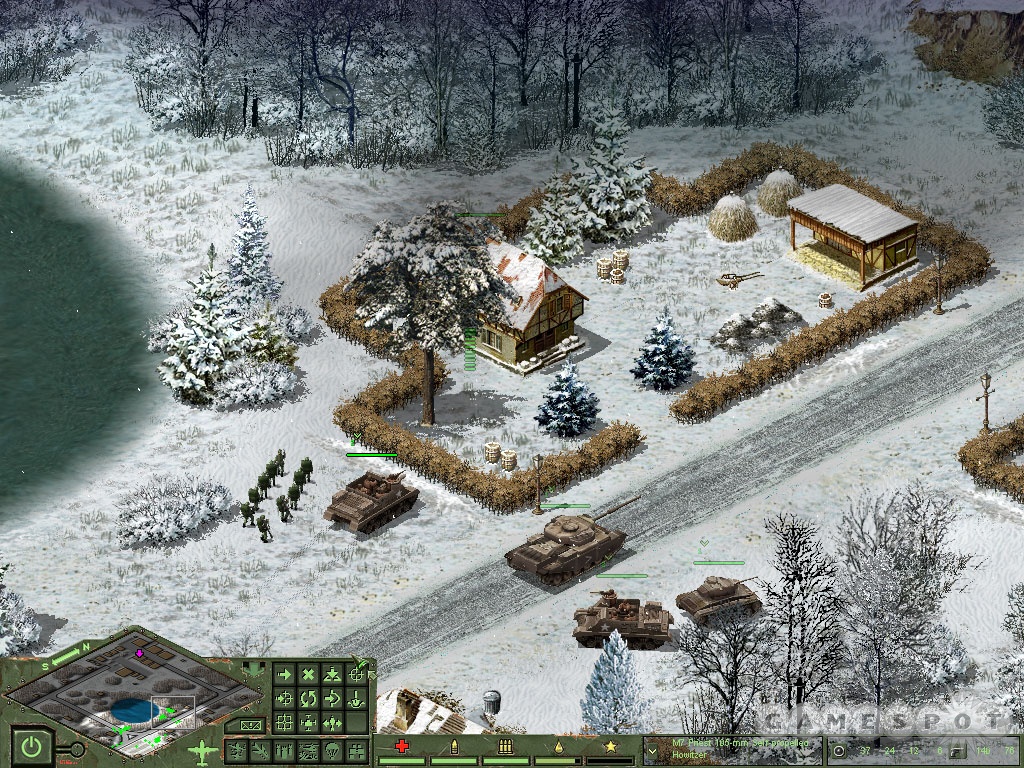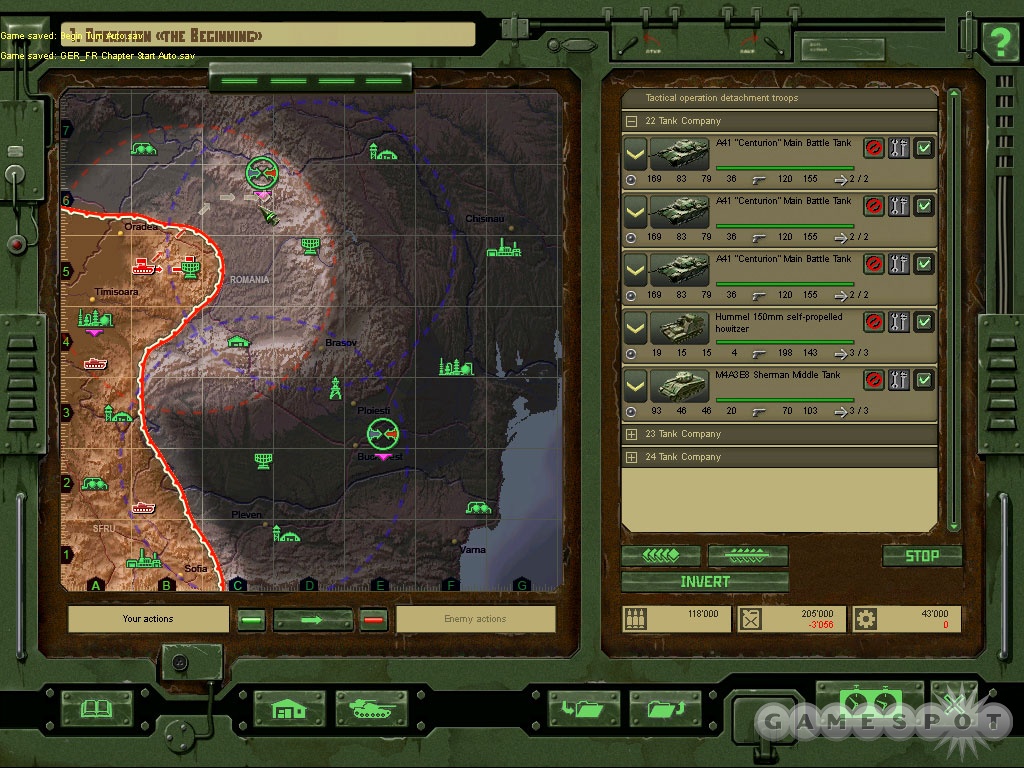Alternative history has always been a popular genre of fiction, and for good reason. After all, it's fun to speculate on what might have been. What if the South had won the Civil War? Or what if the Allies had lost World War II? With Cuban Missile Crisis: The Aftermath, we have a strategy game that asks what if the 1962 Cuban Missile Crisis ended in nuclear war that wiped out civilization as we know it? And what if the remnants of the surviving armies kept fighting for fuel and supplies and to simply get home? It's a nifty premise, and one that's presented quite uniquely in Cuban Missile Crisis. This is a game that could have been just another real-time strategy game, but it turns out that it's stuffed with some really good ideas. And while the game itself suffers from some notable flaws, it does manage to present a setting and a style of gameplay that we rarely get to see.

In many ways, the plot of Cuban Missile Crisis reminds us quite a bit of the old, popular role-playing game Twilight 2000, because both games share a desperate and bleak postapocalyptic tone. In Cuban Missile Crisis, you choose to take command of any of the four major factions that are left in a post-World War III world, including the Anglo-American Alliance, the Soviet Union, the Franco-German Alliance, and China. However, instead of controlling nations and large armies, you'll command units cobbled together with survivors and stragglers. Instead of huge divisions, you command companies or smaller units, with a few tanks and other vehicles that are strung together with whatever spare parts are available.
Cuban Missile Crisis plays out on two maps, a turn-based strategic map and a real-time-strategy map where battles are resolved. While this makes it sound like other RTS games that feature overarching campaigns, Cuban Missile Crisis differs in a few notable ways. The strategic map displays the territory that's under your control, and, more importantly, the location of various supply depots that become strategically critical to your campaign, including fuel depots, which help keep your vehicles going; spare parts depots, so that you can repair your units; and ammunition depots for bullets and shells. It makes sense that these become the entire focal point of your war effort, as you simply need to secure more supplies to keep going. Still, you can't help but feel like a general when you come up with a strategy and issue orders to your units. For instance, you may have multiple thrusts into enemy territory to seize different objectives, or you may try to concentrate your units so that you can force the enemies into decisive battle. It's so engaging that you'll often be tempted to use the autobattle function to instantly compute the results of battles so you can stay in this mode, rather than having to battle it out yourself.
The real-time battles, on the other hand, are a mix of both good and bad. The good news is that there's very much a sense of logistics on this battlefield. Move your tanks around too much, and they burn up their fuel, or if they shoot their cannons at everything they see, they'll run out of ammo. The solution is to bring up your very vulnerable supply vehicles, so there's a real-world logistical tempo that you rarely feel in RTS games. And the good news is that you don't "build" units on the battlefield; what you start with is pretty much what you get. Couple that with the fact that reinforcements in general are scarce between battles, and you'll suddenly find yourself husbanding your resources, as each tank is worth more than its weight in gold over time. It's a good thing that unit experience is also modeled, so you really become attached to the veteran units over the course of a campaign. Thankfully, there's quicksave and quickload, which both let you experiment with tactics, so if an attack fails disastrously (which will happen often), you aren't completely hosed--just simply reload and start again.

Then there's the not-so-good stuff. Combat can be a micromanagement mess, and while we like the idea that infantry can have different stances or that you can load different types of ammo into your tank cannons, managing all of this can be a chore. Yes, you can pause the game in battle, but you're still going to be doing a lot of clicking on the interface to give orders. And, like with Blitzkrieg 2 (a game with which Cuban Missile Crisis shares a graphics engine), armor is overpowering in the game. However, if you don't have tanks, you're in for a harder time, because then you have to rely on more combined arms tactics, which is harder to pull off, since pretty much everything that's not a tank can blow up with a single hit. Meanwhile, the pathfinding has issues, as units will get stuck in crowds, or go the long way around an obstacle, and so forth. What's important here is that you can play through a lot of battles in the campaign. But if you complete every one of these battles, then it won't be too long before you get a feeling of déjà vu sinking in. Then there's the tutorial, which is tough to get through, as it's stuffed with lots of text displayed in tiny fonts, which is hardly a fun way to pass the time or to ease newcomers into the game. The production values also vary. The graphics are on par with last year's Blitzkrieg 2 (indeed, both games share the same engine), and while the graphics engine wont' turn heads, it gets the job done. The sound, on the other hand, features more of the generic military real-time strategy audio that we've heard many a time before.
Despite these flaws, you can't help but admire some of the new ideas that Cuban Missile Crisis brings to the strategy genre. The strategic map is well done, so it feels much more like a cool wargame than it does a real-time-strategy game. The way that success on the battlefield affects your strategic standing, and vice versa, is also an interesting aspect. Still, Cuban Missile Crisis is very much geared toward serious strategy fans that have the patience for long, drawn-out games, or for anyone who's a fan of bleak, postapocalyptic futures.